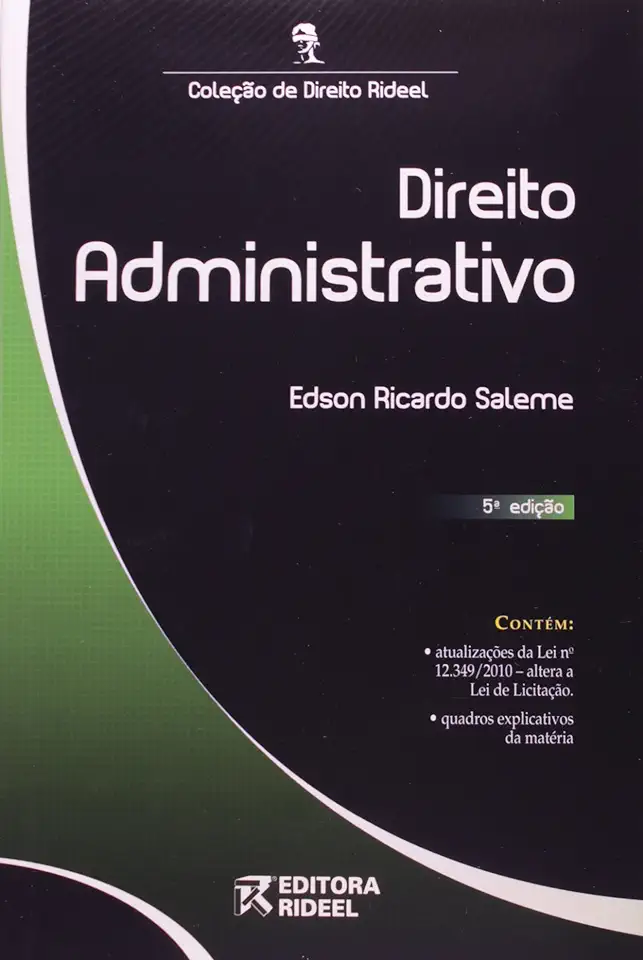
Administrative Law - Edson Ricardo Saleme
Administrative Law: A Comprehensive Guide to the Legal Framework Governing Administrative Agencies
Introduction
In today's complex and ever-changing regulatory landscape, understanding administrative law is crucial for navigating the intricate web of rules, regulations, and procedures that govern the actions of administrative agencies. Edson Ricardo Saleme's comprehensive book, "Administrative Law," provides a thorough and insightful examination of this vital legal framework, offering readers a deep dive into the principles, practices, and challenges that shape administrative decision-making.
Key Features:
Comprehensive Coverage: Saleme's book provides a comprehensive overview of administrative law, encompassing a wide range of topics, including the structure and functions of administrative agencies, the rulemaking process, judicial review of administrative actions, and the rights and obligations of individuals in their dealings with administrative agencies.
Clear and Engaging Writing Style: Written in a clear and engaging style, the book makes complex legal concepts accessible to a broad audience, including students, practitioners, and anyone interested in understanding the legal framework governing administrative agencies.
Real-World Examples and Case Studies: Saleme effectively illustrates the practical application of administrative law principles through real-world examples and case studies, bringing the subject matter to life and demonstrating the impact of administrative decisions on individuals and society.
Chapter Summaries:
Chapter 1: Introduction to Administrative Law
- Provides an overview of the history and development of administrative law, its sources, and the role of administrative agencies in modern governance.
Chapter 2: Structure and Functions of Administrative Agencies
- Explores the different types of administrative agencies, their organizational structures, and the functions they perform, including rulemaking, adjudication, and licensing.
Chapter 3: The Rulemaking Process
- Delves into the rulemaking process, including the steps involved in promulgating administrative rules, the requirements for public participation, and the legal standards for judicial review of agency rulemaking.
Chapter 4: Judicial Review of Administrative Actions
- Examines the scope and standards of judicial review of administrative actions, including the doctrines of standing, ripeness, exhaustion of administrative remedies, and the arbitrary and capricious standard.
Chapter 5: Rights and Obligations of Individuals
- Discusses the rights and obligations of individuals in their dealings with administrative agencies, including the right to due process, the right to access government information, and the right to challenge agency actions.
Chapter 6: Special Topics in Administrative Law
- Addresses specialized areas of administrative law, such as environmental law, immigration law, and government contracting, highlighting the unique legal issues and challenges in these areas.
Conclusion:
"Administrative Law" by Edson Ricardo Saleme is an indispensable resource for anyone seeking a comprehensive understanding of the legal framework governing administrative agencies. Its comprehensive coverage, clear writing style, and real-world examples make it an essential tool for students, practitioners, and anyone interested in the intricate world of administrative law. By mastering the principles and practices outlined in this book, readers will gain the knowledge and skills necessary to navigate the complex regulatory landscape and effectively engage with administrative agencies.
Enjoyed the summary? Discover all the details and take your reading to the next level — [click here to view the book on Amazon!]